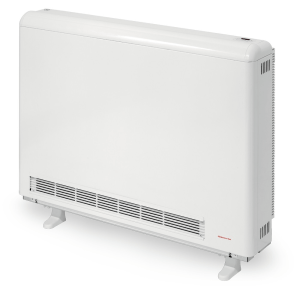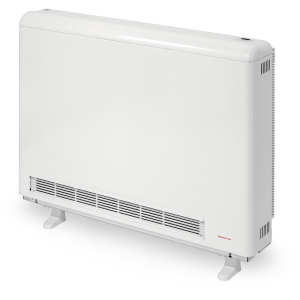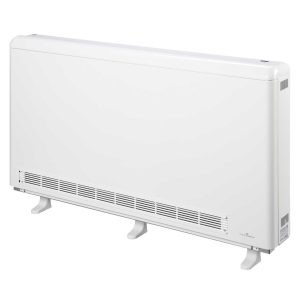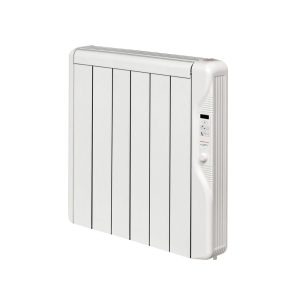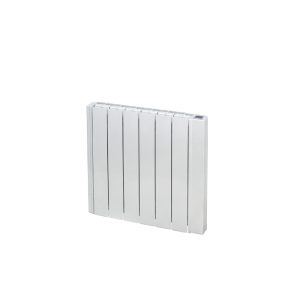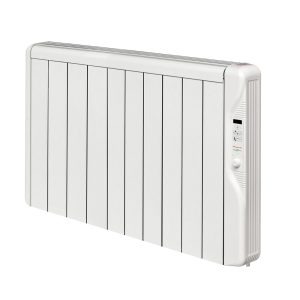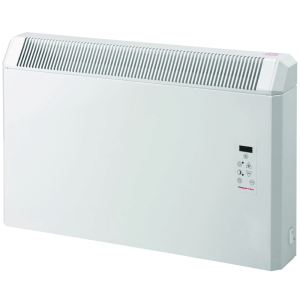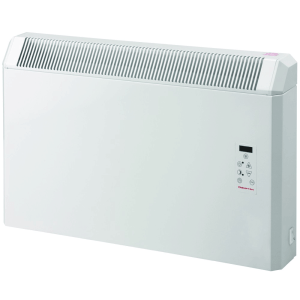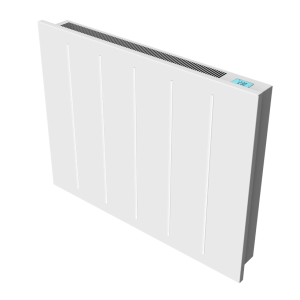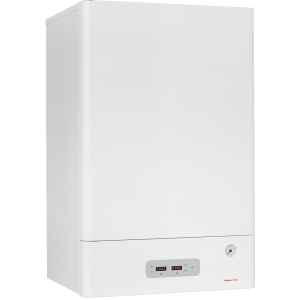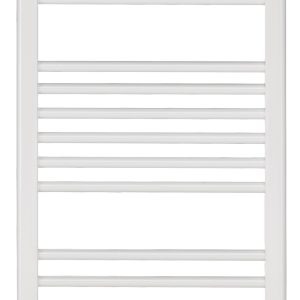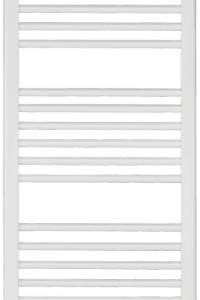Our Top 5 Heating Options For The Ultimate Winter Comfort
9th November 2023
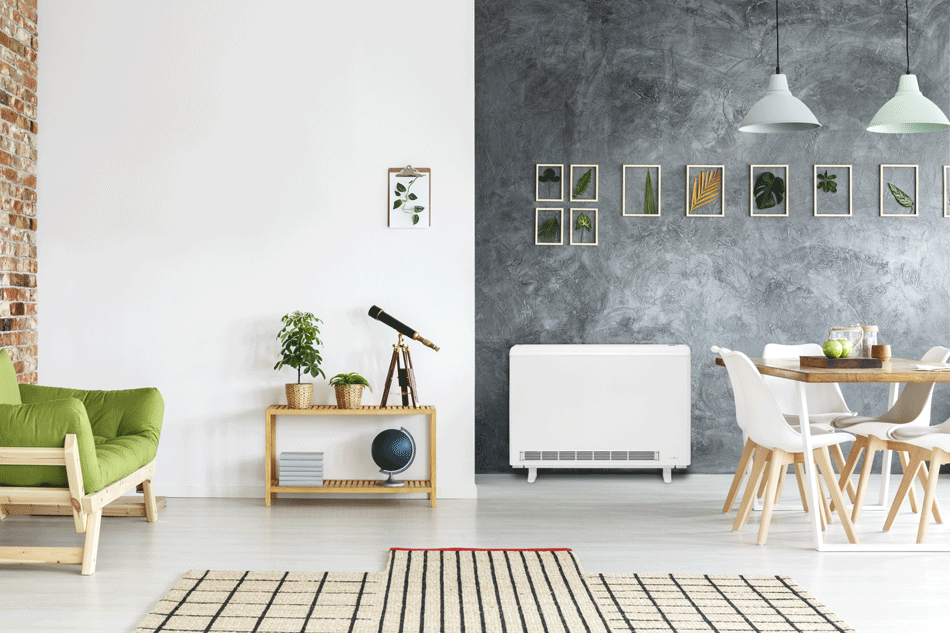
How Do I Choose The Heater For Me?
As the winter chill sets in, finding the right heating solution is essential for creating a warm and comfortable home. With various options available, it can be difficult to choose one that best suits your heating needs. In this guide, we’ve chosen our Top 5 Heating Options, each offering unique benefits to keep your space warm and cosy. Browse through our selection, and see which option feels best for you.
1. Storage Heaters: Efficient and Convenient
Storage Heaters are renowned for their energy efficiency and convenience. Since their invention in the 1960s, they have become a stable in heating homes around the UK. They store heat during off-peak hours, typically at night when you do not need heating, and release it gradually throughout the day. This means you can enjoy consistent warmth without the need for constant adjustments. They are an excellent choice for homeowners seeking a low-maintenance and cost-effective solution.
Advantages –
- Energy Efficiency: One of the primary advantages of storage heaters is their energy efficiency. They operate on off-peak electricity rates during the night, allowing you to take advantage of lower energy costs. They store and release heat during the day, reducing the need to use more expensive daytime electricity.
- Low Operating Costs: Because they use cheaper off-peak electricity and store heat for later use, storage heaters can significantly reduce your heating bills. In times of the cost of living crisis, affordability is a must–which is what makes storage heaters so appealing to budget-conscious homeowners.
- Simple and Low Maintenance: Storage Heaters are relatively simple to operate and require minimal maintenance. There are no moving parts, and they have a long lifespan, reducing the need for frequent repairs or replacements.
- Even Heat Distribution: Storage Heaters provide even and consistent heat distribution throughout the day. This creates a comfortable living environment, and you do not need to constantly adjust the temperature.
- Quiet Operation: Unlike some heating systems that can be noisy, storage heaters operate quietly, ensuring a peaceful and undisturbed atmosphere in your home.
- Space Requirements: Storage Heaters can be bulky and require adequate wall space for installation. This may limit where you can place them in your home.
- Initial Cost: While storage heaters can save money in the long run, the initial cost of purchasing and installing them can be relatively high. This might be a barrier for homeowners on a tight budget.
In conclusion, storage heaters are a practical and cost-effective heating option for many households, especially those with predictable daily routines and lower energy budgets. They are efficient, low maintenance and offer even heat distribution. However, the space requirements and initial cost can be drawbacks for some individuals who require more flexibility in their heating systems. Take the time to go through the advantages and disadvantages discussed. If you think this may be the perfect fit for you, check out some of our suggested Storage Heaters below:
2. Electric Radiators: Precise and Customisable
Electric radiators offer precision heating control and customisation. With digital thermostats and timers, you can program your radiators to maintain your preferred temperature and schedule. They’re perfect for rooms where individualized heating is a priority.
Advantages –
- Precise Temperature Control: Electric radiators provide accurate temperature control, allowing you to set and maintain your preferred room temperature. Many models come with digital thermostats and programmable timers for customized heating schedules.
- Energy Efficiency: Electric radiators are energy-efficient, as they convert nearly 100% of the electricity they consume into heat. This efficiency can lead to lower energy bills, especially when you program them to heat only when needed.
- Quick Warm-Up: Electric radiators provide rapid heat output, ensuring your room warms up quickly. This is especially valuable during colder spells or when you need immediate warmth.
- Zoning: Electric radiators are ideal for zone heating. You can install them in individual rooms, allowing you to heat only the spaces you’re using. This can lead to significant energy savings.
- Low Maintenance: Electric radiators are low-maintenance devices. Much like the storage heaters, they have no moving parts, reducing the risk of breakdowns and the need for frequent repairs.
- Operating Costs: While they are energy-efficient, electric radiators can still be expensive to operate, particularly in regions with high electricity costs. The cost-effectiveness largely depends on your electricity rates.
- Space Requirements: Electric radiators require wall space for installation. Depending on the size and type of radiator, this can affect room aesthetics and space utilization.
In conclusion, electric radiators offer precise temperature control, quick warm-up times, and energy efficiency. They are ideal for zoning and require minimal maintenance. However, they can have high operating costs in areas with expensive electricity. The decision to use electric radiators should be based on your specific heating needs, budget, and environmental considerations. Take the time to go through the advantages and disadvantages discussed. If you think this may be the perfect fit for you, check out some of our suggested Electric Radiators below:
3. Panel Heaters: Versatile and Space-Saving
Panel heaters are versatile and space-saving options for smaller areas or rooms with limited wall space. They can be easily wall-mounted, providing even heat distribution and freeing up valuable floor space. With digital control and energy-saving features, they offer a practical heating solution.
Advantages –
- Energy Efficiency: Panel heaters are generally energy-efficient because they convert nearly 100% of the electricity they consume into heat. This can result in cost savings on your energy bills.
- Even Heat Distribution: Panel heaters are designed to provide even heat distribution across a room, ensuring a comfortable and consistent temperature.
- Quick Warm-Up: They have the ability to heat up quickly, providing immediate warmth when needed. This feature can be particularly useful during cold spells.
- Space-Saving Design: Panel heaters are usually slim and flat, making them space-saving and unobtrusive when wall-mounted. This allows for flexible placement and reduces clutter in the room.
- Low Maintenance: Like the other heating options we have discussed so far, panel heaters are low-maintenance devices with no moving parts. This reduces the risk of mechanical failures and the need for frequent maintenance or repairs.
- Limited Heating Capacity: Panel heaters are ideal for small to medium-sized rooms. They may not provide sufficient heat for larger spaces, and using multiple units can increase installation and operating costs.
- Operating Costs: The cost of electricity, which powers panel heaters, can vary widely based on your location and energy rates. In regions with expensive electricity, operating panel heaters may be less cost-effective.
In summary, panel heaters are energy-efficient, provide even heat distribution, and have a space-saving design. They are quick to warm up and require minimal maintenance. However, they may not be suitable for large spaces, and the upfront cost and operating costs can be relatively high. The decision to use panel heaters should be based on your specific heating needs, room size, and budget considerations. Take the time to go through the advantages and disadvantages discussed. If you think this may be the perfect fit for you, check out some of our suggested Panel Heaters below:
4. Boilers: Reliable and Traditional
Boilers have been a reliable heating choice for decades. They use various fuels, including gas and oil, to heat water, which is then circulated through radiators or underfloor heating systems. Modern boilers are energy-efficient and offer consistent warmth. They are a popular choice for larger homes and commercial spaces.
Advantages –
- Energy Efficiency: Modern boilers are highly energy-efficient, with many achieving over 90% efficiency. This can result in cost savings on energy bills.
- Long Lifespan: Boilers have a longer lifespan compared to some other heating systems, often lasting 15 to 30 years with proper maintenance.
- Hot Water Supply: Many boilers are combined with water heating systems, providing a continuous supply of hot water for both heating and domestic use.
- Initial Cost: The initial purchase and installation of a boiler can be relatively high, especially for high-efficiency models and complex installations.
- Maintenance Requirements: While boilers have a long lifespan, they require regular maintenance to operate efficiently. Neglecting maintenance can result in reduced performance and costly repairs.
In conclusion, boilers offer even heat distribution, energy efficiency, and hot water supply. However, they have a high initial cost, require maintenance, and may take longer to warm up. The choice of a boiler should be based on your specific heating needs, space availability, budget, and environmental considerations. Take the time to go through the advantages and disadvantages discussed. If you think this may be the perfect fit for you, check out some of our suggested Boilers below:
-
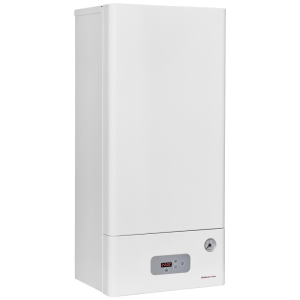 Rated 0 out of 5Sale! Add to cart
Rated 0 out of 5Sale! Add to cart£1,352.77Original price was: £1,352.77.£1,126.67Current price is: £1,126.67. inc VAT
5. Towel Rails: Dual-Purpose Heating
Towel rails do more than just keep your towels warm and toasty. They double as heating elements for your bathroom, ensuring a cozy environment when you step out of the shower. Towel rails are available in various styles and sizes, making them a practical and stylish addition to any bathroom.
Advantages –
- Energy Efficiency: Modern boilers are highly energy-efficient, with many achieving over 90% efficiency. This can result in cost savings on energy bills.
- Long Lifespan: Boilers have a longer lifespan compared to some other heating systems, often lasting 15 to 30 years with proper maintenance.
- Hot Water Supply: Many boilers are combined with water heating systems, providing a continuous supply of hot water for both heating and domestic use.
- Initial Cost: The initial purchase and installation of a boiler can be relatively high, especially for high-efficiency models and complex installations.
- Maintenance Requirements: While boilers have a long lifespan, they require regular maintenance to operate efficiently. Neglecting maintenance can result in reduced performance and costly repairs.
In conclusion, boilers offer even heat distribution, energy efficiency, and hot water supply. However, they have a high initial cost, require maintenance, and may take longer to warm up. The choice of a boiler should be based on your specific heating needs, space availability, budget, and environmental considerations. Take the time to go through the advantages and disadvantages discussed. If you think this may be the perfect fit for you, check out some of our suggested Boilers below:
In conclusion, the choice of a heating solution depends on your specific needs, the size of your space, and your preference for energy efficiency and customization. Whether you opt for storage heaters, electric radiators, panel heaters, boilers, or towel rails, each option brings its unique advantages. Keep your home warm and welcoming throughout the winter with the heating option that suits you best. If you think we missed any options from our list, why not leave a comment and let us know what you think?

